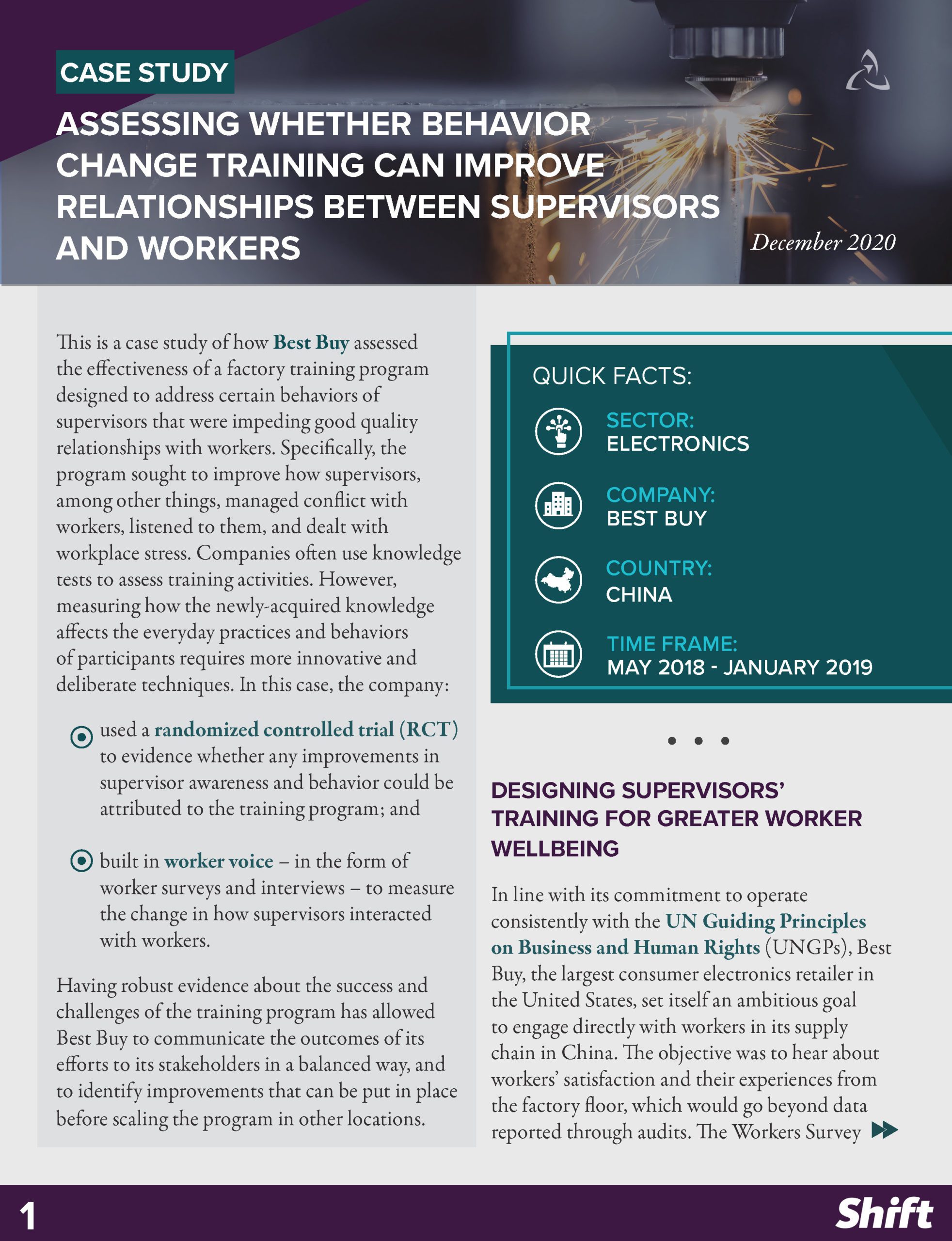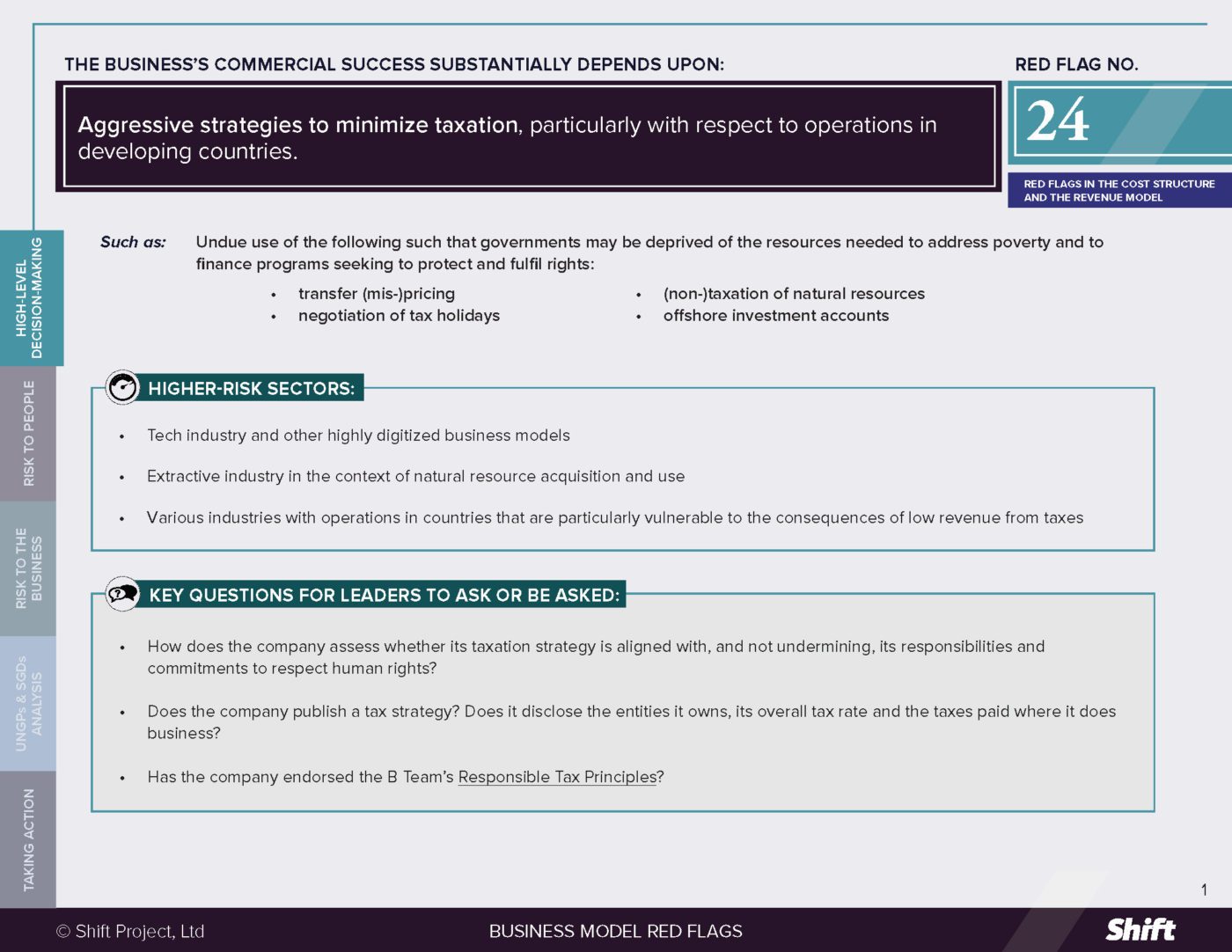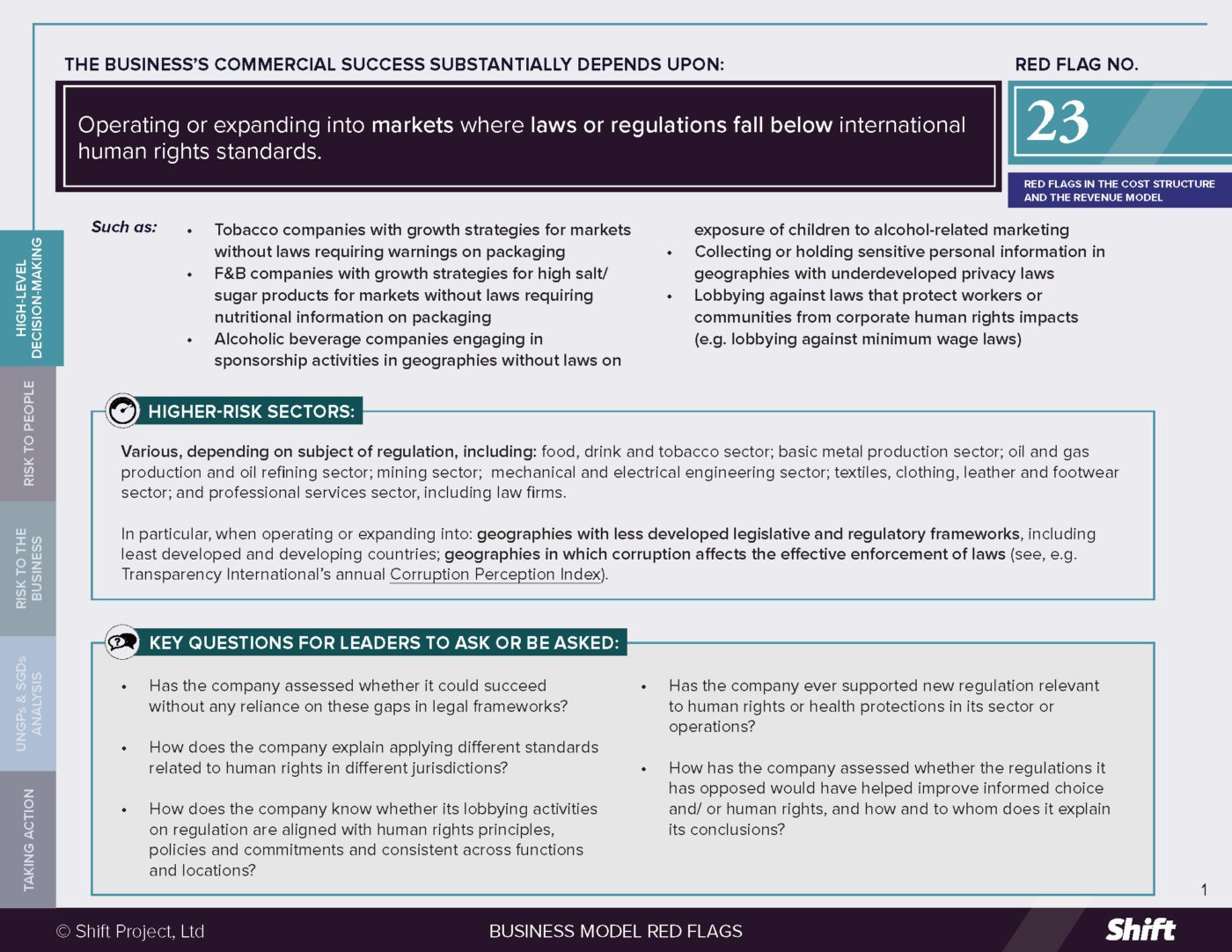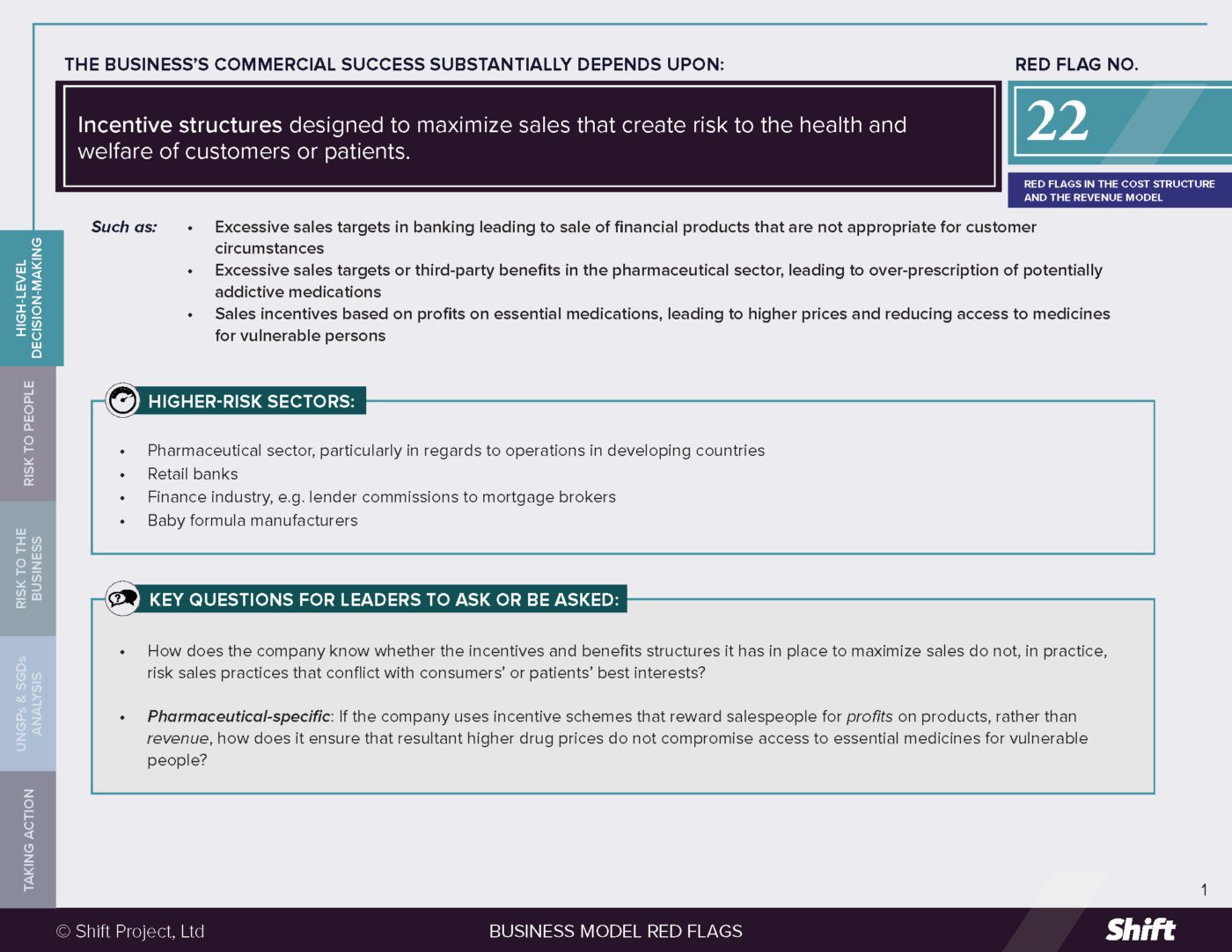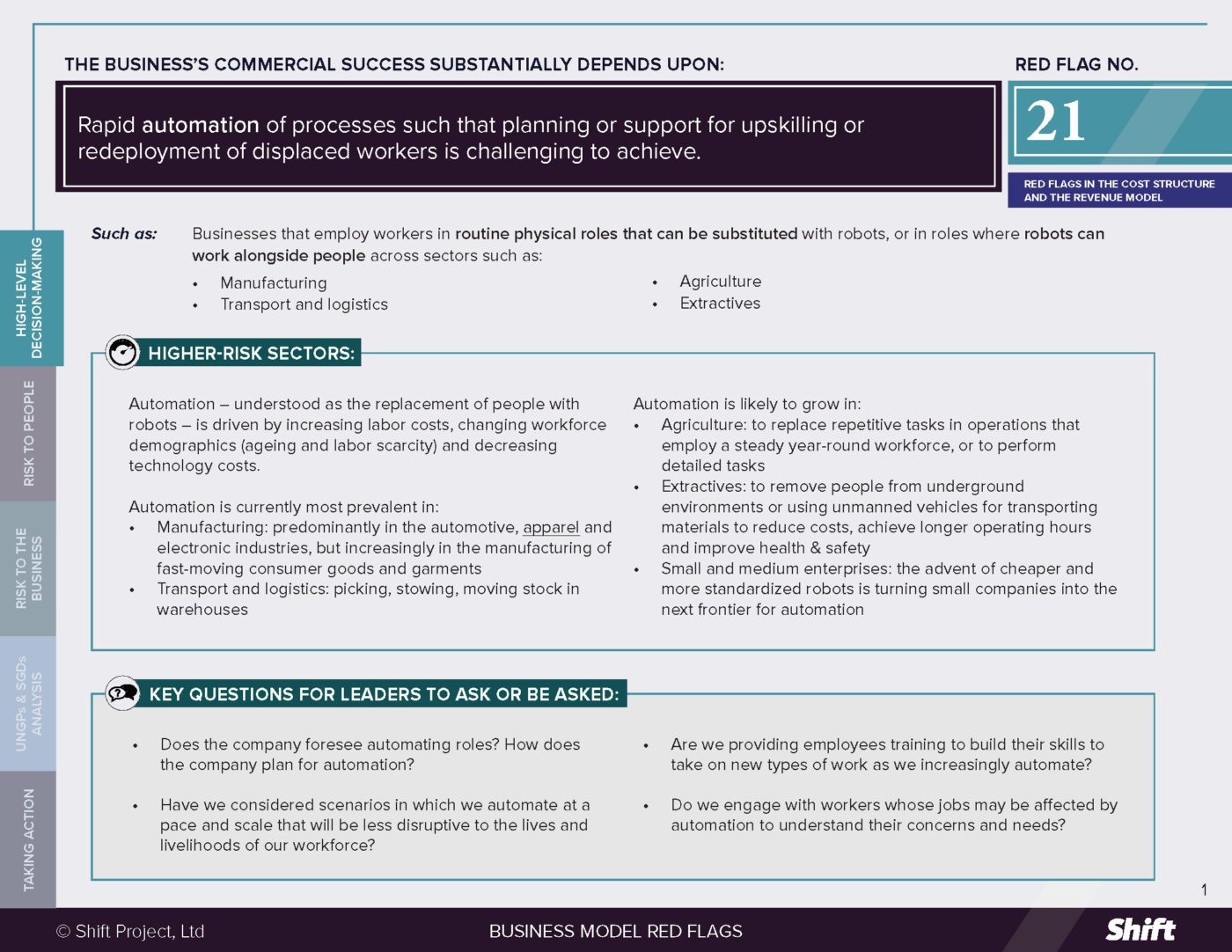This is a case study of how Best Buy assessed the effectiveness of a factory training program designed to address certain behaviors of supervisors that were impeding good quality relationships with workers. Specifically, the program sought to improve how supervisors, among other things, managed conflict with workers, listened to workers, and dealt with workplace stress. Companies often use knowledge tests to assess training activities. However, measuring how the newly-acquired knowledge affects the everyday practices and behaviors of participants requires more innovative and deliberate techniques. In this case, the company:
- used a randomized controlled trial (RCT) to evidence whether any improvements in supervisor awareness and behavior could be attributed to the training program; and
- built-in worker voice – in the form of worker surveys and interviews – to measure the change in how supervisors interacted with workers.
Having robust evidence about the success and challenges of the training program has allowed Best Buy to communicate the outcomes of its efforts to its stakeholders in a balanced way, and to identify improvements that can be put in place before scaling the program in other locations.
I strongly encourage companies to do what they can to isolate their interventions so as to better assess the impact they are having on labor practices and working conditions. We created target and control groups, which is ideal, but not the only option in seeking to evaluate more accurately.
hamlin metzger, senior director of human rights – best buy

 Business Model Red Flags
Business Model Red Flags  Tool for Indicator Design
Tool for Indicator Design 